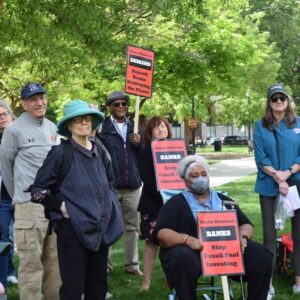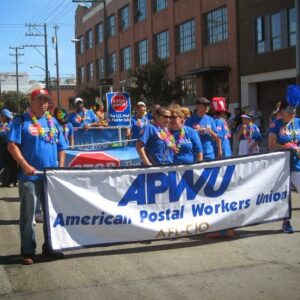March 3, 2026
Union Demands: Count HCR Drivers as Casuals
(This article appeared in the September/October 2010 issue of The American Postal Worker magazine.)
Bob Pritchard – Motor Vehicle Division Director
As part of our long-standing battle to protect our jobs against subcontractors, MVS officers at the national level filed a Step 4 grievance on Sept. 1, 2009, asserting that Highway Contract Route (HCR) drivers must be counted as casuals. The grievance (Case #HQTV20097) [PDF] has been appealed to arbitration.
If HCR drivers are counted as casuals, the casual complement would exceed the number permitted under the terms of Collective Bargaining Agreement in most installations; such a ruling would strengthen the union’s effort to limit subcontracting.
We recommend that every local union file a grievance on this issue, and appeal the grievance to Step 3. Click here to download a Step One Grievance Outline Worksheet [PDF].
We recommend that locals first file grievances against HCR “emergency” contracts, which are limited to six months duration. Next, locals should grieve regular HCR contracts. National Business Agents should appeal all of these local grievances to arbitration, to be held in abeyance pending the outcome of the national case.
USPS Position on Casuals
We based the national-level grievance on the Postal Service’s brief in the “Kelly Girls” arbitration case, in which the union asserted that temporary office employees should be counted as casuals.
The USPS argued that the temporary Kelly employees should not be considered casuals, but management’s brief, which outlined the Postal Service’s description of what constitutes a casual employee, supports our position on contract drivers. Based on management’s own definition, HCR drivers fall within the casual category.
In the Kelly case, which was arbitrated in 2003, Arbitrator Shyam Das ruled that employees of temporary employment agencies must be counted as casuals, despite the fact that they were paid by private companies and were hired to perform specific skilled assignments. These same circumstances apply to HCR drivers. (Click here for the award in the Kelly case, USPSCase #Q90C-6E-C 94046800 [PDF].
A Critical Case
The Collective Bargaining Agreement limits the percentage of casuals that can work in a district and prohibits management from using casuals “in lieu of” career employees. If HCR drivers are counted as casuals, the total casual complement would surpass the number allowed by the contract in most installations and in every District in the country. Clearly, HCR drivers are being used in place of career employees.
We believe that the HCR case is critical and could help us move forward in contract negotiations. Although it is a tough battle, we are optimistic that the grievances will strengthen our fight against subcontracting.
Contract Negotiations
Contract negotiations got underway on Sept. 1, and we remain eager to hear your thoughts on improving working conditions in the Motor Vehicle Craft.
Please send any recommendations or suggestions to the MVS Division at APWU National Headquarters in Washington, DC. Written correspondence can be mailed to 1300 L Street NW, Washington, DC, 20005.
Also, please visit the MVS pages at the APWU Web site, www.apwu.org , for important updates.



